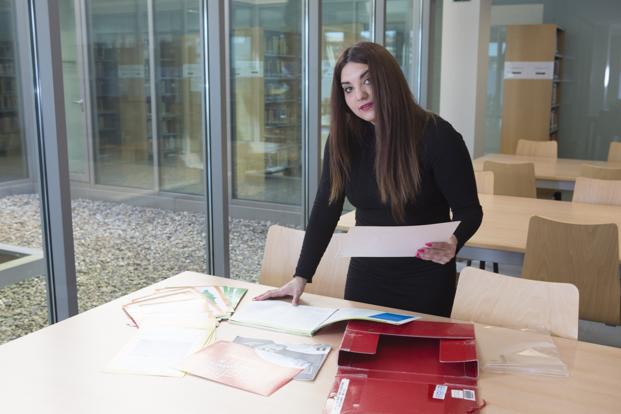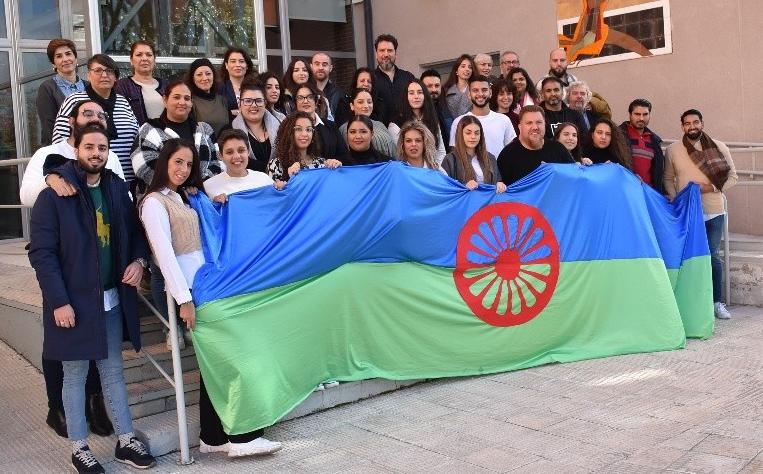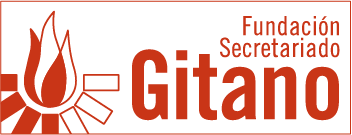Promociona+ Programme [editar]
FOR THE EDUCATIONAL PROMOTION OF ROMA STUDENTS IN POST-COMPULSORY EDUCATION.

Students are guided and supported throughout these stages, and specific assistance is provided in subjects that prove particularly challenging.
The aim is for more and more Roma pupils to complete their post-compulsory education, thereby reducing early school leaving.
Educational guidance – personalised support for students – and assistance in ‘Assisted Study Classrooms’ at these stages continue to be effective tools against dropout rates.
The Promociona+ Programme is aimed at students in post-compulsory education: upper secondary education, intermediate and advanced vocational training, undergraduate and postgraduate studies.
During the 2023/24 academic year, the Promociona+ Programme was carried out with 676 students from 54 locations in 13 regions.
The support provided to students promoted over several academic years makes it possible to achieve a goal that bridges a major gap, that of school failure (secondary education qualification), but another gap appears: that of students who do not continue or do not successfully complete post-compulsory education.
At this stage, it is necessary to continue working on the educational pathway to ensure that Roma students successfully complete their formal studies through specific support: educational guidance and/or support in certain subjects.
During their access to and continuation in post-compulsory education, Roma students face a specific situation: a large proportion of these students are the first in their families and immediate circles to continue their education and, therefore, to prioritise long-term training, thus becoming role models for future generations.
Within the framework of this programme, we would also like to highlight the following more specific projects:

Specialisation Diploma in Social Intervention with the Roma Community
This programme is carried out in collaboration with the Public University of Navarre (UPNA).
The main objective of the programme is to provide professional training to young Roma and non-Roma people for social intervention with the Roma community in contexts of cultural diversity. Through this predominantly online training, students learn to base their actions on the history, current social system and changing trends of the Roma community. They also learn to contextualise their actions within the current legislative framework and to manage intervention programmes based on equal opportunities, equal treatment and the fight against discrimination.
Throughout the course, there are two face-to-face meetings where issues affecting the Roma community are discussed and proposed.

POSTGRADUATE SCHOLARSHIPS FOR ROMA WOMEN ‘FUNDACIÓN SECRETARIADO GITANO-LUIS SÁEZ’
Specifically aimed at Roma women pursuing postgraduate studies.
The purpose of the scholarships is to encourage Roma women university students who wish to continue their education in postgraduate studies in order to promote their social advancement, access pathways that improve their employability and, ultimately, serve as an inspiration and reference for Roma children and young people.
The scholarships are tailored to each student's personal, family, social and employment situation. They cover items such as tuition, housing and living expenses, teaching materials and transport, among other possible items.
All the information (in Spanish) can be found on the website.
AMBASSADORS FOR EDUCATION
Made up of young Roma men and women who are role models, motivated and concerned about the education of Roma students. They are essential role models for students in earlier stages of education.
HIGHLIGHTED RESULTS
During the 2023/24 academic year, students in the Promociona + Programme were enrolled in Intermediate Vocational Training Courses (37%), followed by upper secondary education (21%), University Degrees and other qualifications (20%) and Advanced Vocational Training Courses (19%).
In total, 186 Roma students obtained post-compulsory qualifications (75.9% of the student body), with the percentage of qualifications being significantly higher among girls than boys (77.5% compared to 72%).
The early leaving rate among the students with whom we worked is relatively low. Only 4.6% of students in post-compulsory education dropped out during the school year. The highest early leaving rate at this stage is among students enrolled in intermediate vocational training (6.9%).

